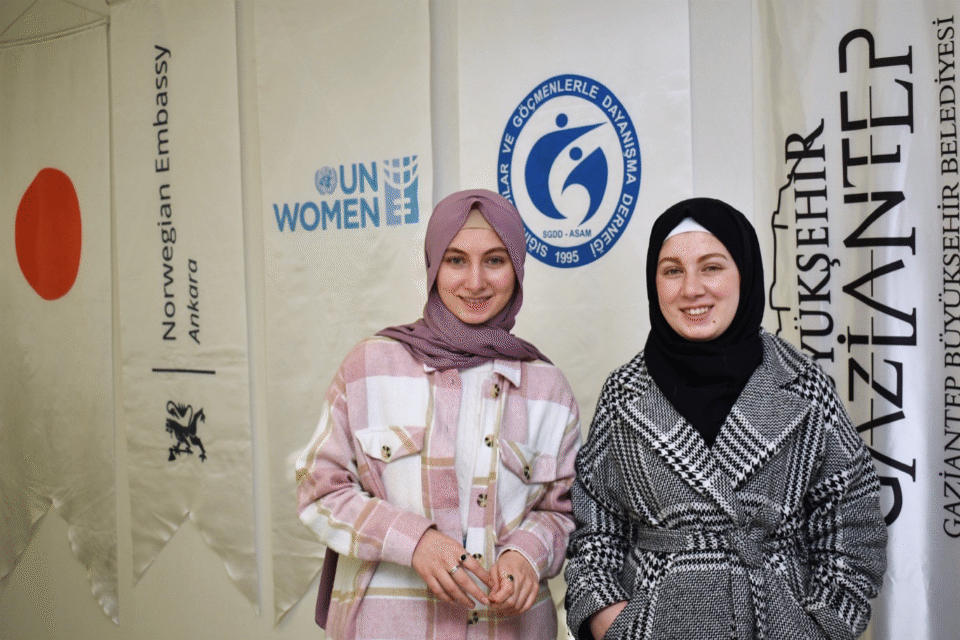Syrian sisters lead the way to higher education for young refugees in Turkey
Date:
A combination of different fears mean many Syrian families are hesitant to send their girls to higher education institutions. Most commonly these fears are language barriers, economic challenges and social norms. Sisters Rama and Ariç Mohamad have overcome all obstacles and attended university. Now they have become a symbol of persistence in challenging social norms and lead their peers on the way to empowerment. The sisters learnt Turkish in preparation for university life with support from the Association for Solidarity with Asylum Seekers and Migrants’ (SGDD-ASAM) as part of the UN Women Refugee Response Programme, funded by the governments of Japan and Norway. The sisters are using this support to pursue a bright and self-reliant future.

In 2012, when Syrian refugee sisters, Ariç and Rama Mohamad, arrived in Turkey they were determined to hold onto their dreams of getting an education and ultimately living as independent women. Their mother is their biggest supporter, having raised them to be strong. At the same time, seeing how disadvantaged Syrian women without an education are, the sisters are very aware about why young women like them should stand up against gender inequalities, especially when it comes to education.
Ariç (19) studies architecture at the university. “We had a beautiful life back in Aleppo,” she says. While she wishes that they could have stayed in Syria, she says that living in Turkey has broadened her horizons and she has learned so much.
Ariç started school as soon as they arrived in Turkey. “In our culture women are expected to take care of kitchen-related responsibilities. How do I improve my life if cooking is all I do? I want to stand on my own feet,” she says. “I was the only Syrian in the class. Learning Turkish was difficult at first, but I wanted to learn it so that I could communicate with my classmates. This way, I overcame the language barrier,” she says.
“We thought it was just a temporary situation when we first came to Turkey,” says Rama (23). She soon realized this was not the case. Studying nutrition at the same university as her sister, Rama has a lot of dreams for her future, but the path to education has not been easy. “People in our social environment such as our relatives and neighbours reacted negatively when they heard my mother is letting us study at a university while our father had passed away,” she says. “Although their reactions discouraged us first, thanks to our mother, we overcame this and increased our motivation for higher education” says Rama.
Rama points out the high numbers of uneducated Syrian girls and relates this to Syrian’s families’ fears. According to her, Syrian parents think girls become disconnect from their culture once they get an education. She says they think that girls with no university education ask for less, help with household chores and do what their families tell them to do. They regard girls as vulnerable individuals to be protected by others, usually male members of the society, such as fathers, brothers and eventually husbands.
“Our situation sparked positive changes in our community too,” says Rama. Recently, when two other young girls were withdrawn from school, the sisters’ mother was able to convince these girls’ father that there is nothing harmful in them going for school. Rama believes the problem is a social rather than an economic issue, and the solution lies in giving families better information and positive examples. She says there is also a need to toughen legal sanctions against men who marry girls under the age of 18.
Ariç and Rama have a common message to all girls: “Never give up the fight for your rights. You should advocate for yourself by asking for support if you are exposed to violence, or if your right to have education is violated. Access to education is a fundamental right for everyone.”